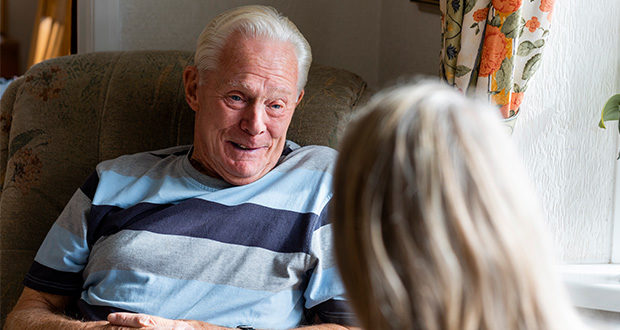Unawareness among older Australians around accessing home care packages may lead to people passing up funding that would otherwise allow them to live at home longer, an aged care specialist has said.
The government has started the rollout of an additional 40,000 home care packages (HCP) worth over $50,000, which means that by June 2023, over 275,000 packages will become available.
"Many older Australians are unaware of their eligibility for HCPs," aged care specialist Simon Lockyer said.
"[The system around HCP] has become so opaque. It's focused on tasks and hours but doesn't acknowledge the people behind it."
Lockyer co-founded Five Good Friends, a company that advises people in navigating My Aged Care and finding the right HCP and providers.
He said it's critical to 'get this information out there' so people can get help and stay home for as long as possible.
Aged Care Insite spoke with Lockyer about the barriers people might encounter when finding an HCP and what they can do to overcome these difficulties.
ACI: What barriers exist for people seeking an HCP? And on what grounds would the government choose not to provide a package to an applicant?
SL: When people start looking for an HCP, it often starts to get really confusing for people. The first thing is; you need to be 65 years or older or, if you're on Aboriginal or Torres Strait Island, 50 years or older. So there's an age threshold there. Then the next thing is that people will be subject to an income-tested fee. Now, that's done by Centrelink or Services Australia and is based on the income people earn. So, people who are full pensioners won't be asked to contribute, or people who have an income of around $30,000. If you aren't over that, you can be asked to pay a fee of between $16 and $33 a day, depending on your income.
Some people at the upper scale have to pay up to $11,000 a year. So, someone might think, 'I'm only approved for a level one HCP, so I might as well arrange those services myself'. But the thing about it is that it's kept annually, you'll never pay more than that, and it's also kept for a lifetime. So in some cases, you are better off getting into the system because you could have six, eight or ten years of a good life ahead of you with the support of these services.
And as you start to reach those higher levels, like a level three HCP, where it's $35,000 or a level four, where it's $53,000, even though you are contributing money to it, you're still receiving a very good benefit to help your fund which they'll ultimately keep. But this is where it normally gets confusing for people.
The government asks the care providers to collect that on their behalf, and then we remit it to the government. So people think they're being charged. And that's why people need help in care navigation.
What is, in your experience, the average time between someone starting to look for an HCP to the point that they start receiving it?
That's a really interesting question because, quite often, it can be a year or up to 18 months before people emotionally start to accept they need care and help. They often have a lot of discussions with families. Sadly, someone will usually not start looking for an HCP until a crisis occurs. There might have been a fall, or maybe a partner has deceased or taken a turn for the worse. Then, suddenly, everything escalates, and they realise that they need care and help, and then they start the journey. And that journey can take time.
Once you first contact My Aged Care, it can take up to three weeks to receive an answer. Then, it can take a few more weeks for them to come into their homes to assess what needs they require. After that, a couple of weeks might pass before they get approved for an HCP. But it can take anywhere between six to twelve weeks before they start to receive it.
And so, for that reason, the number one piece of advice we give people is to start your conversations and planning earlier. Research done by Macquarie University found that for every hour of service received at home, the risk of someone entering residential aged care was reduced by 6 per cent. The most important things are the simple things like companionship, social engagement, and a bit of support and help around the house. And that makes so much sense because that's just keeping people engaged with their communities and friends. When people have support and social engagement, it leads to much better outcomes.
Are you satisfied with the number of HCPs available at the moment?
Definitely. When we started Five Good Friends, we were just overly six years young, there were just under 100,000 HCPs on the market that the government was funding. By June 2023, there may be 275,000. So, the government is investing hard in at home care. It believes it's the right strategy for people, and we do too. Of course, there's often a point where someone requires residential aged care, but if we can keep people at home longer and safely and independently, we'll get better outcomes.
Do you have an idea for a story?Email [email protected]
 Aged Care Insite Australia's number one aged care news source
Aged Care Insite Australia's number one aged care news source


The Government and COTA have been trialing the Aged Care System Navigators across Australia to assist older people with barriers to accessing My Aged Care. It has been so successful that the program will be rolled out nationally through the Primary Health Network from 2023.